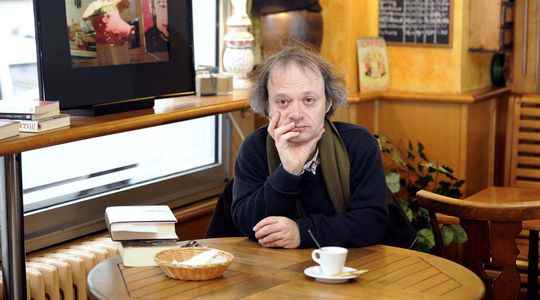If the Russian invasion of Ukraine challenges you, mobilizes you, revolts you and even if it interests you no more, look elsewhere and you will discover that the most subtle geopolitician of this whole crisis is the one who has a priori no qualifications to take advantage of it, being neither a soldier nor a diplomat nor a journalist and even less a continuous commentator or multi-card expert.
This 61-year-old little guy, who is reminiscent of Dustin Hoffman from Midnight Cowboy when we see his rickety silhouette advancing in the distance over the Brooklyn Bridge, is one of our most singular literary translators. His name is André Markowicz, of Russian mother and French father of Polish Jewish origin, and lives in Rennes, after spending his childhood in Leningrad with his maternal grandmother.
He made himself known by proposing to Hubert Nyssen, owner of Actes Sud, to retranslate Dostoyevsky, on the grounds that the translators had been in the wrong direction by conferring such French elegance on this brutal author. All or nothing, forty-five volumes, taken up in five volumes. The publisher has matched his taste for risk with the translator’s grain of madness. The result was a masterpiece (although nothing makes him proud like his translation ofEugene OneginPushkin’s novel in verse) which caused a stir and launched Markowicz’s career in publishing as well as in the theatre.
Do not charge for the culture of a people
Its world is the romantic, theatrical and poetic imaginations that the Russian language has been carrying for centuries. And he authorizes himself from this old trade to dissect, with accents of truth unique in our media landscape, what has been happening in Ukraine and Russia since February 24. The fruit of his reflections is freely available on his blog (the Facebook page “facebook.com/andre.markowicz“, bringing together 4,900 friends), “place without place” in which he keeps his intimate diary as a writer. Crazy but so lively, fascinating, informed, digressive at will.
As soon as a bad wind rose in Europe and the United States to ostracize and cancel Russian artists and creators from Western stages, the dead as well as the living, it rose up so that we would not make the culture of a people the imperialist policy of its dictator. For almost nine years that he has kept this blog, he had already devoted a number of chronicles to the regime, its widespread corruption and its cult of war. All things that announced the result even if he recognizes today: “It was so big that I had not seen it”.
Details drawn from the best sources
His weapon, put at the service of an independence of spirit and an unparalleled freedom of tone, is his knowledge of the Russian language. Vigilant to denounce this “war of annihilation”, he is the only one to go and flush out from the pen of a fascist author the origin of the word “russophobia” so prized by the dictator. But do not believe that he is content to accuse: he regularly delivers to his readers information, details, things seen gleaned from the field networks he constantly consults, the official Russian press agency RIA-Novosti as well as the Russian commentators in exile, the postal services of Belarus hacked by dissidents, Deutsche Welle in Russian and the sites of the refugees in exile (“Gulagu.net” of Vladimir Ossetchkine for example) on ordinary terror and the fear it engenders.
His anger warms the heart, his analyzes shake up caution, they are the essential complement to the reports of journalists. If he allows himself a historical analogy, it is with Budapest 1956, because people resisted and they fought. If he finds a model in Putin, it is Tsar Nicholas I. And if it is necessary at all costs to find a precedent, he will seek it on the side of Koenigsberg, razed in 1945, its inhabitants massacred, driven out and replaced by Russians before it becomes Kaliningrad. A totally Russian city.
If necessary, he does not hesitate to correct the approximate translations of the press. Thus in this telephone conversation intercepted between two Russian officers in Ukraine: “- I am moving forward, but I haven’t had time to ‘clean up’. – It is not ‘clean up’ that is needed, resumes the other is steret?s lica zemli“. It means to shave completely, but the word for word is more meaningful: ‘wipe from the face of the earth’.” And by this translator’s reflex, these poet’s words, you will not read them anywhere else.
